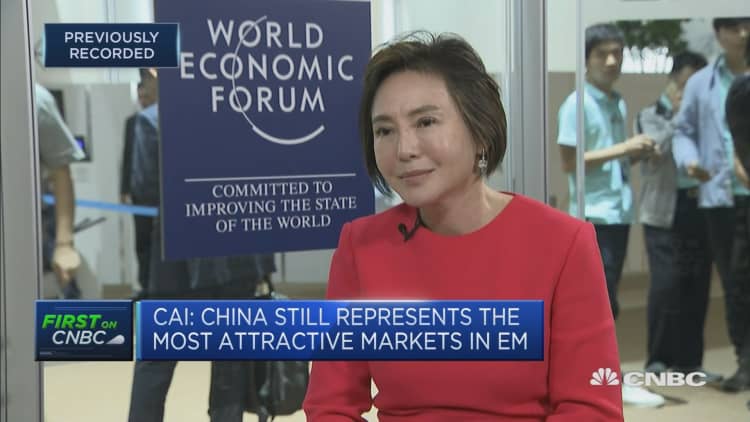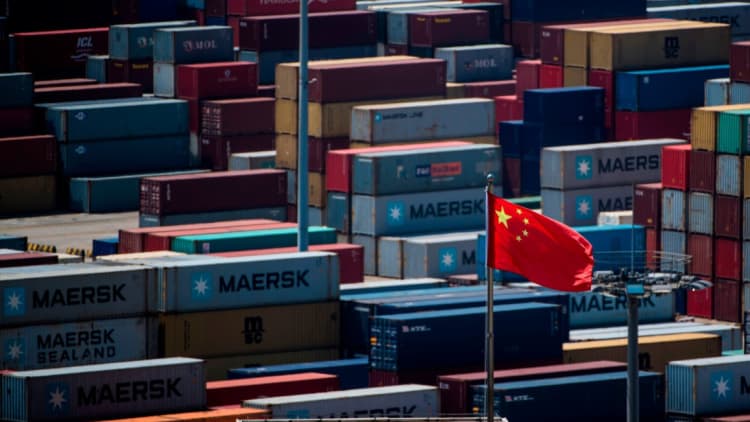
The impact on the Chinese economy from the trade tariffs will be small, and China markets are still attractive despite slumping this year, said Catherine Cai, chairman of UBS's Greater China investment banking arm.
China markets have tumbled more than 20 percent this year, which experts have attributed to the volatility over the trade war with the U.S.
The market's reaction has been overblown, Cai suggested, pointing to the "pretty healthy" growth potential of most Chinese corporations. The latest news on the additional round of U.S. tariffs on Chinese goods did not "totally surprise" everyone, she said, given that investors knew they would likely come.
"We still think, among all the emerging markets, China's still representing the most attractive market," she told CNBC at the World Economic Forum on Tuesday.
Investors are worried about the larger picture.
"Actually I think people (are) worried about the global economy, what this trade between U.S. and China will do to the global supply chain, will do for global economy," Cai said.
U.S. President Donald Trump will impose 10 percent tariffs on $200 billion worth of Chinese imports from Sept. 24. Those duties will rise to 25 percent at the end of the year, the Trump administration announced on Monday.
The latest tariffs are set to escalate the trade conflict between the world's two largest economies, with China already threatening to retaliate against new duties.
But the impact of the tariffs on the Chinese economy will be "very small," and the Chinese government is now "prepared" to manage that, Cai pointed out.
"In the meantime, the Chinese government has taken a lot of proactive policy, such as loosening up monetary policy, and the central bank maybe going to ease more credit. So that's taking these opportunities to further beef up China's domestic consumption."
WATCH: How China manages its monetary policy

"This time, (they are) prepared and they have taken cautious measures on the worst scenario … for the Chinese economy. But in the meantime, is (the) U.S. government ready?" she asked, adding that the trade war will not benefit either side.
The best solution, she said, would be still for both countries to negotiate.


